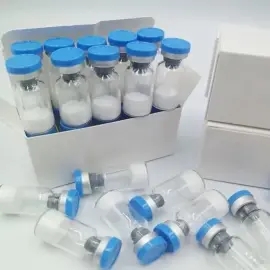-
Categories
-
Pharmaceutical Intermediates
-
Active Pharmaceutical Ingredients
-
Food Additives
- Industrial Coatings
- Agrochemicals
- Dyes and Pigments
- Surfactant
- Flavors and Fragrances
- Chemical Reagents
- Catalyst and Auxiliary
- Natural Products
- Inorganic Chemistry
-
Organic Chemistry
-
Biochemical Engineering
- Analytical Chemistry
- Cosmetic Ingredient
-
Pharmaceutical Intermediates
Promotion
ECHEMI Mall
Wholesale
Weekly Price
Exhibition
News
-
Trade Service
the cells in our bodies are constantly updated. A group of genetic information in a human group is 3 billion base pairs in length, and to ensure cell survival, it is necessary to ensure that each replication can be completed with high precision. For cancer cells, this is not the case.Recently, a team led by Professor David Thomas of the Garvan Institute of Medicine in Australia studied a variety of cancers, including melanoma, pancreatic, sarcoma and breast cancer, and found that cancer cells, after exposure to cancer treatment, make a lot of mistakes by copying DNA, which in turn produces resistance to survive. The findings were published in the journal Science.This conclusion is reminiscent of a 2017 article in the journal Science. In the paper, scientists from Johns Hopkins University's Kimmel Cancer Center found that nearly two-thirds of cancer mutations stem from random errors in DNA replication. Errors in DNA replication are a major cause of cancer.At present, the main problem facing patients with advanced cancer is resistance, even if effective treatments are ultimately difficult to avoid. 'We've identified basic survival strategies for cancer cells to develop resistance, which gives us new ideas for treatment, ' says Professor Thomas.Specifically, the researchers began analyzing potential drivers of drug resistance by analyzing biopsy samples from cancer patients before and after receiving targeted cancer treatment. Targeted therapy is a common treatment for many forms of cancer, and its principle is to stop cancer growth by interfering with the molecules needed for tumor growth.The results were surprising, with cancer cells in patients receiving targeted therapy showing much higher levels of DNA damage than before treatment, which is known to have not directly damaged DNA.The researchers then used genome-wide sequencing to analyze how treatments led to accelerated evolution of the cancer genome. Experiments have shown that cancer cells receiving targeted therapy undergo a process called stress-induced mutation (SIM). They produce a much higher rate of random gene variation than cancer cells that do not receive anti-cancer drugs. The same principle is used for bacteria to develop resistance.To figure out how stress mutants are trapped in human cancer cells, researchers conducted a massive screening to silence each gene in the cancer cell individually to find specific ways to help with resistance. It was found that cancer cells stopped growing when the mTOR gene was silenced, but abnormally accelerated evolution during cancer treatment, and mTOR signaling enabled cancer cells to alter the expression of genes involved in DNA repair and replication.The researchers say the discovery opens up new potential strategies that combine conventional targeted cancer treatments with drugs that target DNA repair mechanisms, potentially lead to more effective treatments.Notably, the researchers tested the feasibility of this strategy in mouse models of pancreatic cancer. The results showed that by combining Palbociclib with Rucaparib, a drug that selectively targets DNA to repair damaged cells, they were able to reduce cancer growth by nearly 60 percent in 30 days, compared to the cancer treatment drug Palbociclib alone.
(Biological Exploration)







